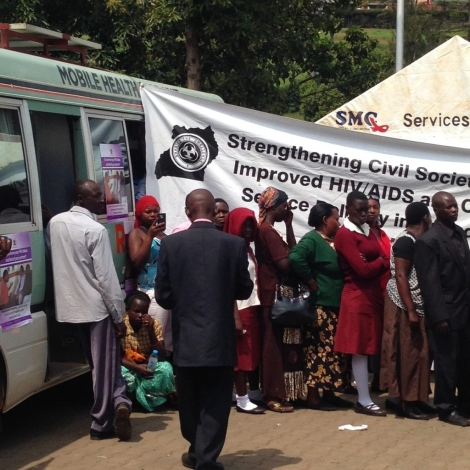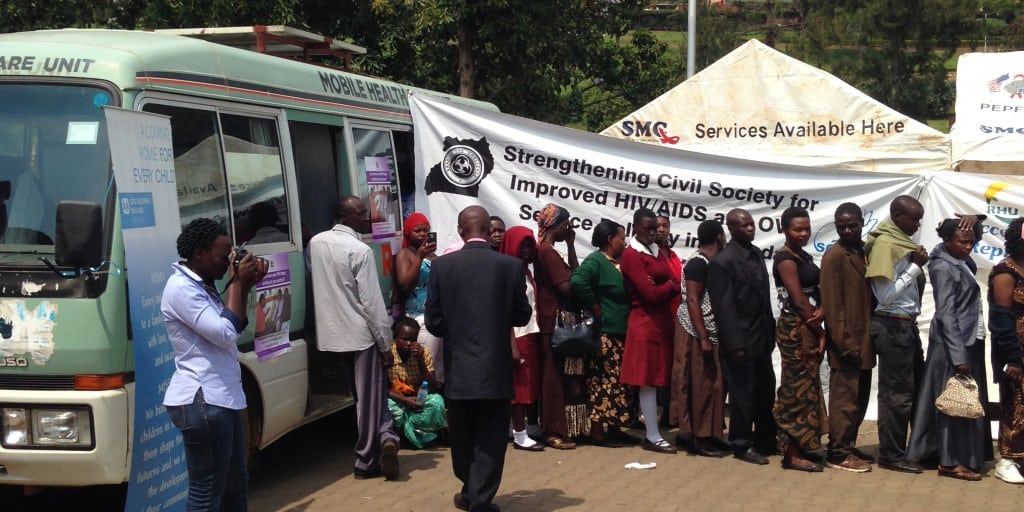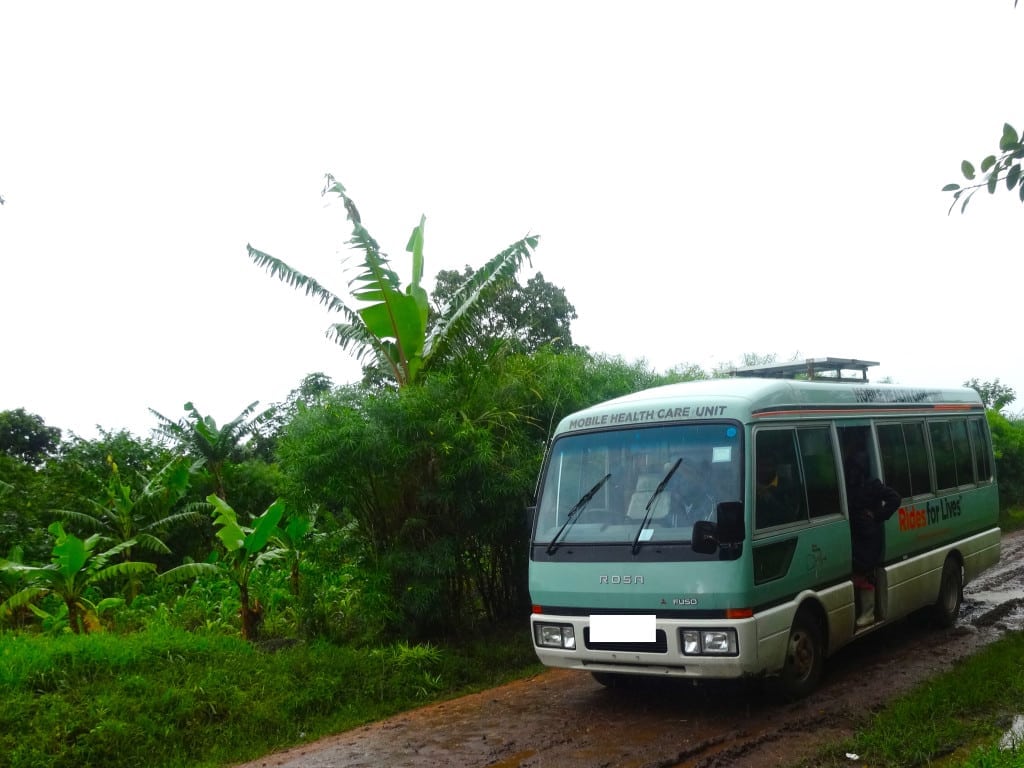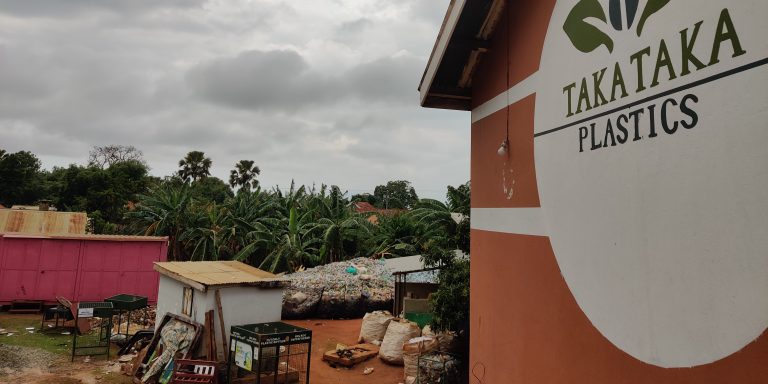Chris Ategeka has been delivering healthcare services in rural Uganda since 2011. First by bicycle ambulance, then by mobile clinics and drug delivery drones. We told some of his story from his birth in Uganda to a foster home in the United States after losing his parents to AIDS. Now he is the founder of Rides for Lives, and these are his lessons learned.
[Please see our Q&A for Ategeka’s advice to start-up founders and hardware developers.]
Keeping up Stock
The hospitals are always stocked with vaccines and medicines. The first problem we ran in to was how to get those vaccines and medicines from the city to the mobile hospitals, especially temperature sensitive medicines. We fixed that problem by installing solar panels on the roof of the bus so we can generate and store electricity for our refrigeration needs. Solar is a great sustainable power source.
Dealing with Small Space Issues
How do you possibly run an efficient clinic when the space you have to work with is a tiny fraction of the size of regular hospital? There is less storage, less privacy, and less comfort, but it’s all about how you manage what you have. With a pharmacy and a lab, space is at a premium in the mobile hospital units, but thoughtful planning and design makes it all possible. In addition, we bring tents for people to sit and wait in the shade before its their turn to see the doctor.
Poor Roads and Other Infrastructure Problems
Poor roads are problematic when it comes to delivering services; especially when it rains heavily. This problems affect all sectors of development (energy, commerce, agriculture etc) in rural areas. Unfortunately, our services heavily depend roads or if we can physically make it to the location we are attempting to serve.
Cultural Differences
Regardless of how much time you plan and brainstorm, there will be factors that you didn’t consider. This has been proven to be true time and time again. That’s why field-testing is so important. Until you get your product out into the communities you hope to operate in, you simply won’t know what your impact will be. It wasn’t until I got on the ground in Uganda that I realized how poorly designed my first bicycle models were for the rough roads and terrain. In theory, turning an old bus into a mobile hospital would be incredibly popular with the community. In actuality, we met with a few critics from the community who insisted that it was more important to use the bus for public transportation than as a hospital.
Building Trust
As with almost any product, people are not going to use a mobile hospital unless they can trust the people and the results. How do you build this trust? Ride for Lives approached this by leasing the mobile hospital units to local doctors who already had the community trust but were lacking in resources. On top of that, our Mobile Hospital Units are on a set schedule, and can be relied upon to show up as expected.
Dealing with Government Red Tape
Its common to for one to be walking around town and run into a large poster that says, “No hurry in Africa”. This statement rings so true when dealing with governments. They work on their own terms! The cooperation and support of the government with a project like Rides for Lives is hugely important in whether it is a success or a failure. Nonprofits will likely face corrupt officials and be forced to pay bribes when conducting operations in any country. This is why it is imperative to be familiar with the culture and customs of the country you are operating in, or to establish a local contact who can navigate the systems.
Chris is a Uganda-born engineer and social entrepreneur who has dedicated his life to changing healthcare through technology and innovation. He founded Rides for Lives, an on-demand rural healthcare company. His accolades include the 2016 World Economic forum Young Global Leader, listed with familiar faces like Ashton Kutcher and Amal Clooney, and a place in the 2014 Forbes 30 Under 30 Social Entrepreneurs, among others.




i want to ask chris if he was in a MEETING organized by rame (rwanda association of medical engineers) in 2015 which was held at kigali rwanda?? thank you sir.
hello,
i would like to ask chris whether their is a chance of parntership with you . as trust future uganda deals with ares of education, health and empowerment.
thanks
Hello there,
First of all, i am so impressed with the projects you are running and for your generosity to the people of the world. Thank you and may God reward you abundantly.
I would like to ask Chris if he can give me some advise, guidance and help in starting a mobile clinic. I am from Eastern Uganda, born in a poverty stricken community. I am trying to work on a few projects that would benefit my community and one of them being a “MOBILE CLINIC”. I would like some advise of how i can source for the bus and equip it.I would also like to get some information in terms of the cost for such a bus.
Thanking you in advance
Tracy